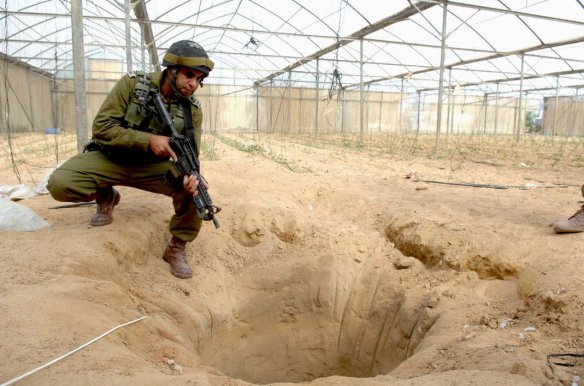Recent weeks have shown us – yet again – how complex and terrible war is. We can all agree that terrorism and brutal fanaticism must be met with robust responses. But it is easy to say that one must do “something” (not to mention that one must do “more”). When we have to specify what that “something” or “more” should be, things immediately become more difficult.

It is true that the Hamas tunnels and rockets have created a clear need, and right, for Israel to defend itself. Photo: Flickr/Israel Defence Forces
Thinkers concerned with the “just war” doctrine have made many attempts to structure this debate, as it relates to use of armed force, and put it on a sound ethical footing. When considering the question of war-related civilian losses, with Gaza fresh in mind, there is one element of the just war tradition that is especially relevant: the principle of “double effect“.
The thinking behind the principle is straightforward: every action may have two types of consequences or effects, intended effects and side effects. The principle of double effect insists that we also have responsibility for the negative side effects of our actions, at least when they are predictable. In certain circumstances, however, we may permit the occurrence of negative side effects, such as civilian casualties in war. Such circumstances arise when there is no other way to achieve an extremely important and wholly legitimate end, and when the negative side effects are proportionate to the importance of that end.
At this time, Israel must tolerate the critical use of this logic against its actions. It is true that the Hamas tunnels and rockets have created a clear need, and right, for Israel to defend itself. And Hamas acts cynically by positioning assets that it knows to be military targets in the immediate vicinity of civilians. But this does not mean that those civilians lose their right to protection. Israel is threatened by Hamas’s activities, but even allowing for the deadly and indiscriminate nature of Hamas’s rockets, Israel has the ability in the short term to protect Israeli lives through other, more defensive means.
These arguments and the situation itself are of course extremely complex and multifaceted, and cannot be solved in a few lines in a blog post. But considered in the light of the principle of “double effect”, we cannot escape the conclusion that many of Israel’s attacks on Gaza emerge in a poor light.
A Norwegian version of this text was published 18 August in the newspaper Vårt Land, and on their debate site Verdidebatt.
Translation from Norwegian: Fidotext